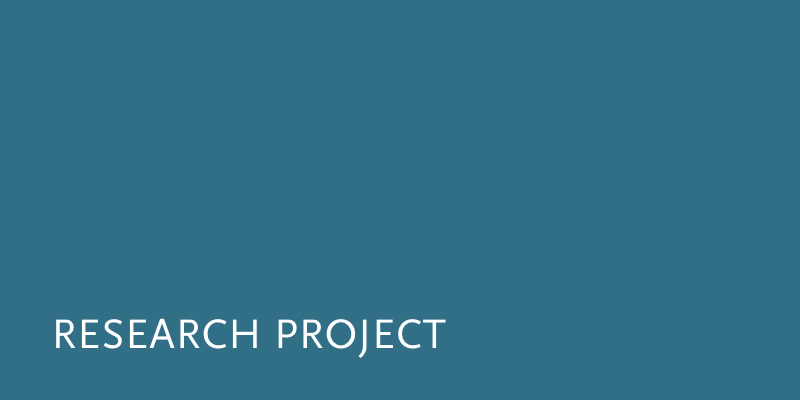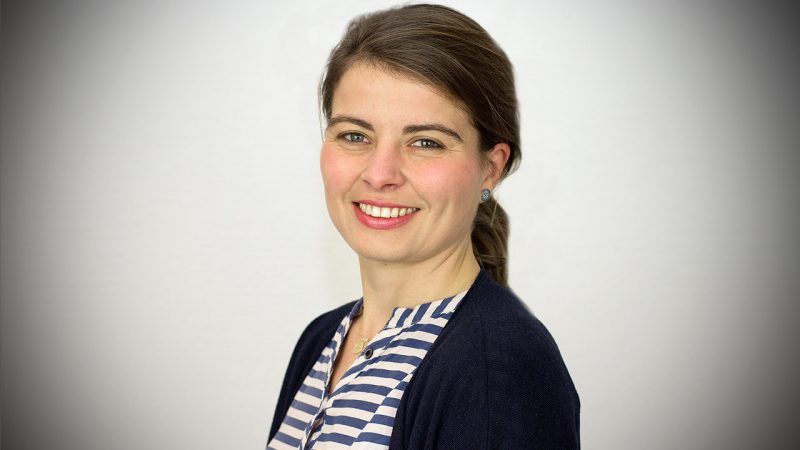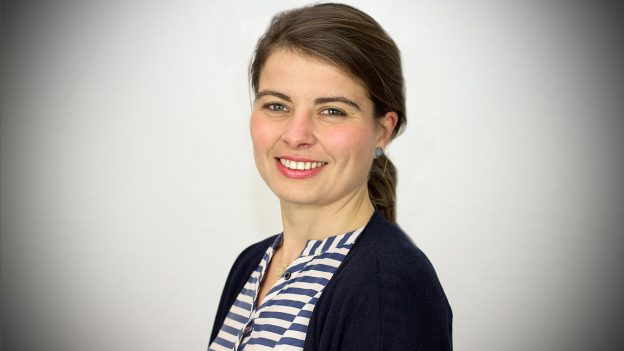
Freedom of Expression in the Quasi-Public Sphere
Private speech on the internet is largely served through platforms, apps and services of commercial entities; and, in turn, is affected by the conditions these actors set. In the absence of globally shared regulatory norms, social media companies such as Youtube, Facebook, Twitter develop transnational rules and practices to govern user content.
How do platforms govern private speech and social communication?
As part of this research, we investigate the emergence and change of platforms’ private governance arrangements for user content by looking historically at the instruments, such as terms of services and enforcement practices, as well as related political discourses. In more abstract terms, we want to better understand, how the governance of change in these spaces takes place. Platforms can be regarded as socio-technical and innovation systems, which are subject to change processes. In order to understand change and innovation, we focus our research on the actors that govern change, the social-technical means and policy instruments through which change is put into practice, as well as the process of legitimising change.
Crunching Internet Freedom: The role of numbers in governance processes
As the impact of corporate and legal rules for user content expands, controversy concerning free speech principles arises. A call for more transparency about decision-making became a widespread demand. In response, internet companies have started to report on the number of requests to remove content, and a few global rankings help to inform the public about the state of internet freedom. What these examples share is the practice of mobilising numbers to measure highly complex issues. In the context of a widespread proliferation of quantified knowledge production, this part of the project scrutinises the routines of dealing with numbers in the global discussion on internet freedom. These studies build on the sociological work on the role of numbers in transnational governance processes.
Duration: ongoing
Sponsors: self-funding
| Duration | since 05/2013 |
| Sponsors | self-funding |
Foto: CC BY-NC-SA 2.0 flickr.com
-
 Kirsten GollatzFormer Associate Researcher: The evolving digital society
Kirsten GollatzFormer Associate Researcher: The evolving digital society
Books
MacKinnon, R., Hickok, E., Bar, A., & Lim, H. with research contribution by Kirsten Gollatz (2015). Fostering Freedom Online: the Role of Internet Intermediaries. Paris, France: UNESCO/Internet Society. Publication details
Journal articles and conference proceedings
Gollatz, K. (2014). Online Free expression in the Corporate Realm: Corporations’ Policies and Practices Shaping Private Speech on Communication Platforms. Nova Acta Leopoldina, NF 119(403), 49-55. Publication details
Wagner, B., Gollatz, K., & Calderaro, C. (2013). Common Narrative – Divergent Agendas: The Internet and Human Rights in Foreign Policy. Conference Proceedings. International Conference on Internet Science. Brussels, April 9-11, 2013, 19-27. Publication details
Book contributions and chapters
Hofmann, J., Katzenbach, C., & Gollatz, K. (2013). Freedom on the Net Report Germany. In Kelly, S., Truong, M., Earp, M., Reed, L., Shahbaz, A., & Greco-Stoner, A. (Eds.), Freedom on the Net 2013 (pp. 302-321). New York, NY: Freedom House. Publication details
Working paper
Wagner, B., Gollatz, K., & Calderaro, A. (2014). Internet & Human Rights in Foreign Policy: comparing narratives in the US and EU Internet Governance agenda. EUI Working Paper RSCAS; Centre for Media Pluralism and Media Freedom (CMPF), 2014/86. Publication details
Other publications
Gollatz, K. & Jenner, L. (2017). Hate Speech und Fake News – Über die Vermischung und Politisierung zweier Begriffe, Teil 1. Digital Society Blog. Publication details
Gollatz, K. & Jenner, L. (2017). Hate Speech und Fake News – Über die Vermischung und Politisierung zweier Begriffe, Teil 2. Digital Society Blog. Publication details
Gollatz, K. (2016). 5 Questions for … Visiting Researcher Dr Axel Bruns. Digital Society Blog. Publication details
Gollatz, K. (2016). The Power of Platforms. Digital Society Blog. Publication details
Gollatz, K. (2014). Deutsche Telekom’s ‘surveillance report’ builds on a trend. Internet Policy Review. Publication details
Lectures and presentations
Platform Governance as Reflexive Coordination – Mediating Nudity, Hate Speech and Fake News on FacebookAoIR 2017 Networked Publics. Association of Internet Researchers (AoIR). University of Tartu, Tartu, Estonia: 19.10.2017
Christian Katzenbach, Kirsten Gollatz
Politics of Discourse: Fake News Controversy in Germany and how it solidifies in new institutional arrangementsAoIR 2017 Networked Publics (Session: Misinformation, Propaganda and "Fake News": A European Perspective). Association of Internet Researchers (AoIR). University of Tartu, Tartu, Estonia: 19.10.2017
Kirsten Gollatz, Jonas Kaiser, Cornelius Puschmann
The turn to artificial intelligence in content moderationDigital-born Media Carnival (Session: Understanding Complex Systems). SHARE Foundation, OSCE Mission to Serbia, Ministry of Foreign Affairs of the Netherlands. Pjaca od Kina, Kotor, Montenegro: 17.07.2017
Kirsten Gollatz
Measuring User Rights Online: Numerical Rankings as a Form of Governing Internet FreedomAnnual Conference of the Canadian Sociological Association at Congress of the Humanities and Social Sciences 2017 (Session: Sociology of quantification, commensuration, statistics, and valuation). Canadian Federation of the Humanities and Social Sciences. Ryerson University, Toronto, ON, Canada: 29.05.2017
Kirsten Gollatz
My place, my rules! Wie Plattformen entscheiden was wir online sagen könnenLange Nacht der Wissenschaften. Lange Nacht der Wissenschaften e.V.. Humboldt Institut für Internet und Gesellschaft, Berlin, Germany: 11.06.2016
Kirsten Gollatz
"You own your content, but…" - Tracing changing notions of ownership over user content in social media platform policiesMedia Trends 2015: Power and Media: Ownership, Sponsorship, Censorship (Session: Panel 8. Users and Consumers). Webster Vienna Private University's Media Communications department. Webster Vienna Private University, Vienna, Austria: 12.09.2015
Kirsten Gollatz
Panels
Vorstellung der Studie "Das Bürger-Internet: Neutralität ist nicht genug" und DiskussionDas Bürger-Internet: Neutralität ist nicht genug. Netopia | Forum for the Digital Society. Haus der Kulturen der Welt, Berlin, Germany: 26.03.2015
Kirsten Gollatz
Moderation of workshops and panels
This Panel May Contain Sensitive Content: Automated Filtering and the Future of Free Expression OnlineRightsCon Toronto 2018. access now. Beanfield Centre at Exhibition Place, Toronto, Ontario, Canada: 17.05.2018
Kirsten Gollatz
Digital Transformation of Media IndustryDigital-born Media Carnival. SHARE Foundation, OSCE Mission to Serbia, Ministry of Foreign Affairs of the Netherlands. Masera Club, Kotor, Montenegro: 15.07.2017
Kirsten Gollatz
Bedingungen für die Ausübung von Meinungsfreiheit im InternetGefährdet Big Data unsere Demokratie?. Vereinigung Deutscher Wissenschaftler VDW e.V., Ev. Akademie Villigst. Ev. Tagungsstätte Haus Villigst, Schwerte, Germany: 15.10.2016
Kirsten Gollatz
Intermediary liability, jurisdiction and extremist content'The Role of Social Media and Internet Companies in Responding to Violent Online Extremism'. Network of Excellence for Research in Violent Online Political Extremism (Vox-Pol). Central European University, School of Public Policy, Budapest, Hungary: 05.03.2015
Kirsten Gollatz
Organisation of events
The turn to artificial intelligence in governing communication online20.04.2018. Humboldt Institute for Internet and Society, Berlin, Germany. Co-Organised by: AccessNow (International)
Kirsten Gollatz, Christian Katzenbach
Data Sprint on Digital Rights in the Telecom Sector23.05.2017. Humboldt Institut für Internet und Gesellschaft, Berlin, Germany. Co-Organised by: Ranking Digital Rights, The WikiRate Project e.V. (International)
Lisa Gutermuth, Kirsten Gollatz
The Internet and Human Rights: Building a free, open and secure InternetFrom 13.09.2012 to 14.09.2012. German Federal Foreign Office, Berlin, Deutschland. Co-Organised by: Aarhus University, Human Rights Watch, Federal Foreign Office of the Federal Republic of Germany (International)
Kirsten Gollatz

